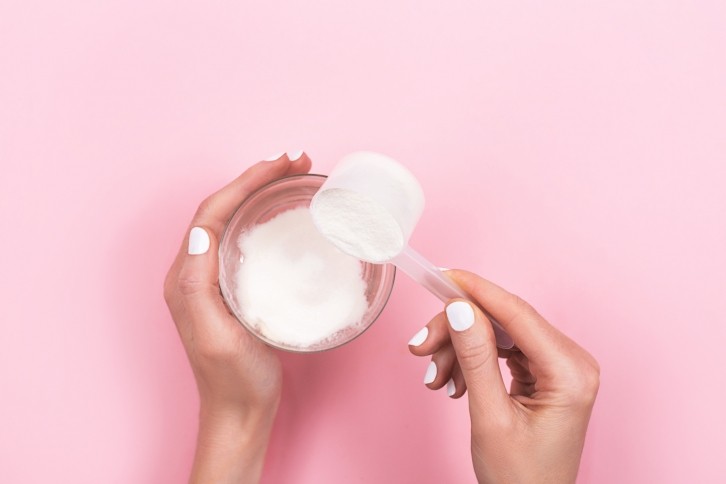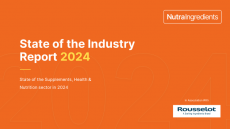Guest Post
Poking the bear: Nutrition Integrated discusses 'vegan collagen'

Collagen is the most abundant protein in the body, and forms our hair, skin, nails and connective tissue. But it decreases with age, which can increase the risk of joint and/or bone health, whilst in the context of ‘inner beauty’ is associated with increased frequency of wrinkles and several other skin metrics.
It is also widely promoted that if we consume collagen, it can support collagen re-synthesis and slow the rate of decline.
It, therefore, doesn’t take a genius to imagine that lots of consumers want to move better (or without restriction and/or pain). Whilst perhaps of greater commercial interest, they want to look (and feel) better too.
The emergence of Vegan Collagen
It was never going to be long before there was a demand for plant-based alternatives to collagen. The sentiment that “plants are healthier” is a macro trend, whilst there are many vegans and/or flexitarians looking for suitable choices.
As a result, there is a growing number of plant-based alternatives available on the market - we are tracking over 50 at last count.
If you weren’t aware of these products, check out: Feel, Dr Lewwin’s, Bulk, and Revive. These four products are good examples of brands using a ‘biomimetic’ or amino acid-matched formulation.
There is also a second group of products best described as ‘collagen boosters’. These products include plant-based ingredients shown or linked to boosting collagen synthesis but don’t try to match the amino acid structure per se.
Good examples of collagen boosters are: Golde, Vivo Life and CNP
What is the problem?
It is about what defines Vegan Collagen, what consumers think they are consuming when a product is called Vegan Collagen, and collectively whether Vegan Collagen is an appropriate term.
Still with me?
The fundamental place to start is to grasp the principle of whether Vegan Collagen can be a biomimetic, i.e. it is molecularly (structure) and biologically (benefit) equivalent to collagen.
Currently, the primary approach to Vegan Collagen is based on an amino acid matched formulation. There is also a huge amount of work into precision fermentation. However, to the best of our knowledge this isn’t commercially viable yet for product development.
So the first question to address is whether an amino acid formulation can be a true biomimetic of collagen? Or to put it another way, collagen is a protein and we can reduce a protein to amino acids - but is it appropriate to refer to a blend of amino acids as a protein?
To do so is a reductionist approach to nutrition on the basis that amino acids alone cannot match the molecule in its entirety (amino acids, peptides, specific bioactivity). To put it bluntly, it isn’t collagen.
However, it is worth reflecting that the majority of the nutrition category is reductionist in principle. So is this approach wrong? And if a Vegan Collagen solution is shown to increase collagen resynthesis (or any other related benefit), is this not an appropriate proxy to collagen? In principle, absolutely.
So, to what threshold of definition do you hold Vegan Collagen accountable? Are you a purist, or is a proxy suitable enough?
A pragmatic approach forward.
Emotions aside, it is well known that collagen decreases with age. And we would all like to reduce the rate at which it declines, with collagen a potential solution.
In the context of Vegan Collagen, and assuming that the amino acid pool is appropriately matched, then it does provide the necessary building blocks to form collagen.
Furthermore, it is difficult to get all of the amino acids in the normal diet, whilst collagen resynthesis can be stimulated by exercise, and simultaneously protected with positive lifestyle changes (reduction of stress) and the consumption of antioxidants.
So perhaps a pragmatic approach is to supply the body with the necessary collagen building blocks, whilst simultaneously stimulating and protecting collagen resynthesis. And if that solution is proven to mimic the benefits of collagen, then all the better.
Is it collagen? No. But for consumers who are vegan or for those looking to make more plant-based choices, some would suggest that there are more advantages to taking it than not.
In fact, it is a genuine ‘alternative’ .
We are conscious that our approach doesn’t change the fundamental discussion of what is (or isn’t) molecularly similar.
But we do believe that for an amino acid matched solution, with proven efficacy, the description ‘Plant-based (Vegan) Collagen ‘alternative’ is a fair one, whether reductionist or not.
Do we have a motive?
Yes. But first, let us just emphasise that we are friends with the collagen world as much as we are friends with the plant based (inclusive of collagen) world.
In fact, we frequently find ourselves in the unique situation of navigating conversations across the supply chain, many of which can be emotive and polarising.
Vegan collagen is one such example.
And our motive? To have the discussion that needs to be had and to look for the proactive route forward.
We know we won’t please everyone, but our motives are genuine. And being both a purist and pragmatist, we believe there is a credible role for plant based collagen alternatives - with alternative being the key word.
But absolutely, they must be communicated appropriately and with suitable scientific evidence to support amino acid equivalency and with that biological efficacy.
Content supplied by Nutrition Integrated.











